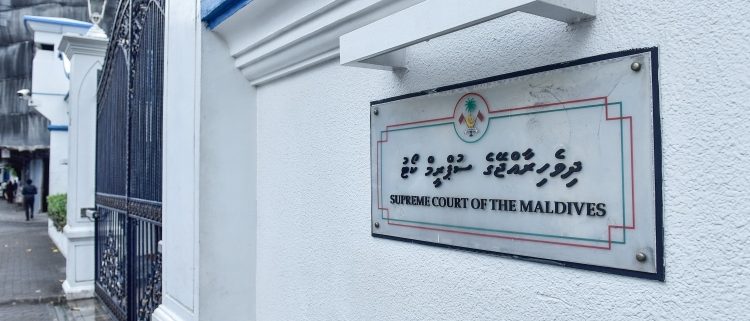MIRA does not have legal authority take legal action for non-tax payments: Supreme Court
In the case of Moosa Naseer v MIRA (2014/SC-A/41), the Supreme Court of Maldives on 22 June 2020, unanimously decided against the Maldives Inland Revenue Authority (MIRA) and held that MIRA does not have the legal authority to sue for lease rent due to the state.
The dispute between Moosa Naseer and the state originated due to non-payment of lease rent and fines under a commercial lease agreement formed in accordance with the Uninhabited islands of the Maldives Act (Law Number 20/98), between Moosa Naseer and the Ministry of Fisheries and Agriculture for the lease of Noonu Bandaidhidhoo for agricultural purposes. Between 2009 and 2011, the Ministry repeatedly notified Moosa Naseer to pay the outstanding lease rent and fines under the agreement to the MIRA – the states revenue collector. The MIRA, in 2011, sued Moosa Naseer in Civil Court for outstanding lease rent and fines owed under the lease agreement with the Ministry of Fisheries. The defendant contended that MIRA had no legal capacity, nor the legal authority to sue for the outstanding amounts. The Civil Court, however, ruled in favour of the MIRA and held that the then total outstanding amount in lease rent and fines of MVR 9,061,442/50 was to be settled with the MIRA within two months from the date of judgment. On appeal, the High Court of Maldives upheld the Civil Court’s decision.
In the Supreme Courts ratio decidendi, Justice Mahaaz Ali Zahir noted that the MIRA did not have a legal basis to claim outstanding lease rent and fines under Section 3(c) and Section 49(a) of the Tax Administration Act (Law number 3/2010) (TAA). Justice Mahaaz opined that Section 3(c) and Section 49(a) of the TAA must be interpreted in accordance with Section 17 of the Interpretation Act of the Maldives; the powers granted to the MIRA under the Act, including the power to sue for unpaid amounts, must be construed to include tax and all amounts and fees related to tax. Further, the specific phrasing of Section 50 of the Act under which fees, rent, royalty or other such amounts which are required to be paid pursuant to an Act can be recovered by the MIRA using the powers under Chapter four of the Act, the amount in dispute in the case before the Supreme Court was not an amount owed under any Act.
The Supreme Court also decided that appellate level court proceedings should be based on the evidence and defences submitted at the trial stage. Moosa Naseer submitted certain defences regarding the calculation of lease rent and fines, and interpretations of certain provisions of the contract at the High Court which were not raised during the original trial.. The High Court, on this issue, decided that a decision need not be made by the High Court as Moosa Naseer had the opportunity to raise those defences at the trial stage and failed to do so. The Supreme Court agreed with the High Court’s decision on this issue and further stated that new evidence can only be introduced at the High Court if there was no opportunity to submit such evidence during the trial stage. Additionally, the Supreme Court noted if the High Court finds that certain issues are not addressed by the trial court, such cases can be remanded to the trial court.
It was further noted that, as the MIRA is not a party to the agreement, the MIRA does not have locus standi and therefore, the case cannot be remanded to a lower court. Justice Mahaaz, in addressing this matter, said that there was no legal impediment for the parties to the agreement to seek legal remedy through court proceedings.
Justice Aisha Shujoon Mohamed, in support of Justice Mahaaz’s opinion, also raised a salient point with respect to prospective application of the law in reference to Article 59 of the Constitution of the Maldives. Justice Shujoon opined that, even though the MIRA argued that the TAA granted the MIRA the power to recover non-tax revenue pursuant to Section 50 of the Act introduced by the first amendment to the TAA, that law cannot be retrospectively applied to an event that occurred prior to the assent of the Act.
The Supreme Court bench presiding over this case consisted of Justice Mahaaz Ali Zahir, Justice Aisha Shujoon Mohamed and Justice Husnu-al Suood.



